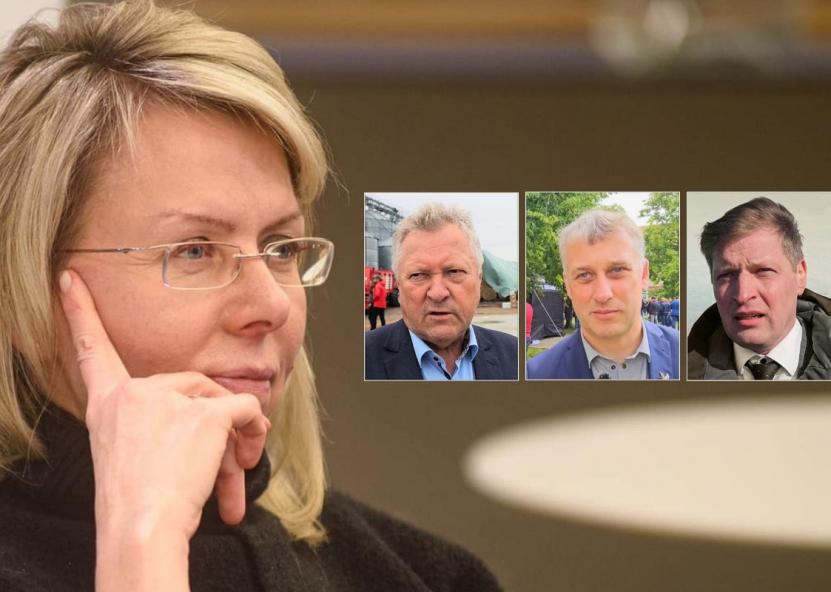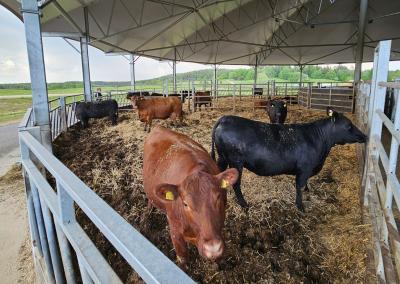The proposed VVM vessel: would a change of management ensure greater efficiency?
The State Food and Veterinary Service (SFVS) has been in the spotlight these days after a report emerged that the head of the service, Audrone Mikalauskiene, has been offered to resign due to a loss of political trust. However, neither the Government nor the Head of State herself have elaborated on the situation. Politicians interviewed by „Agrobite.lt“ acknowledge that this silence raises even more questions about the transparency and accountability of the MoHVT.
The dilemma of political trust
Former Minister of Agriculture Kazys Starkevičius pointed out that the problem is primarily at the level of the government: „To call the head of the government and say that political trust has been lost without specifying anything – is a kind of diktat by the former head of the government. If the leader has to step down, it should be made clear – why.“
The politician sees positive changes in the work of the VVT, i.e. more farmer-oriented, providing advice rather than just imposing bans. „I have also seen strong moves on export controls on grain, especially Russian grain, where the flow has been reduced. These were positive steps," noted Mr Starkevičius.
Meanwhile, MEP Valius Ąžuolas wondered whether the manager's resignation had been proposed because of the irregularities identified. „It is possible that there are offences that could lead to more serious consequences. Therefore, voluntary resignation is allowed – this option is more convenient for both the manager and the State. But if there are irregularities, they must be held accountable," he said.
Kęstutis Mažeika added that the government's silence only increases uncertainty. „It is strange that the authorities that should verify the information are not doing their job. This practice seems to be becoming the norm“, – wondered the Chairman of the Committee on Rural Affairs.
Does the MoHFW inform the public properly?
There has been a lot of publicity about informing the public about unsafe food products, the sudden refusal of the HMVT to give exact quantities and other nuances. However, not all politicians saw the problem here.
K. "I don't see anything being hidden from the public. If the products do not comply with the requirements, they are definitely removed.“
V. Oak noted that the reorganisation of the VVM, which has reduced the number of units, has also reduced the control possibilities. „The fewer people doing the inspection, the more mistakes there will be. That's what we're seeing," he said.
K. Mažeika also recalled that the information process is regulated and coordinated with other institutions. It is not fair to blame the VVM alone. The regulations on information have been in place for a long time, but no changes have been proposed. This is why supermarket chains often take more initiative in informing consumers themselves," the MEP stressed.
Double standards – a threat to trust
The issue of possible "double standards" for large and small businesses was also raised repeatedly. K. Starkevičius was cautious about such talk: „I don't have the facts, so I cannot comment. I cannot comment on it, but I cannot comment on it.
Meanwhile, V. Oak is convinced that talk of „double standards“ undermines confidence in the whole system. „These are food products after all. People want to feel safe, and when news of contaminated products appear one after another – it is very sad“, – the politician stressed.
K. „Big companies also have veterinarians who are partly financed by the state, i.e. they work for both private business and the state, perhaps as a consequence. Small businesses seem to be under more pressure. Even though the legislation is the same for everyone and should be respected by everyone equally.The role of Parliament and the necessary changes
Should the Parliament discuss the issue of accountability of the management of the SHA in the autumn session? K. Starkevičius suggested that we should first wait for clear answers from the Government and then think about certain decisions.
V. Ąžuolas recalled the function of parliamentary scrutiny and stressed that if there is a problem, it should be solved as soon as possible, rather than dragging it out and waiting for the consequences to be even worse.
K. Mažeika also pointed out that the role of the Seimas in this case is limited to parliamentary control. „It is possible to see whether standards are applied uniformly, and if deficiencies are identified, to propose changes at the level of the ministry or the government“, – he stated.
Politicians agree that strengthening of the VVT is necessary, but only V. Ąžuolas saw the need for a change in leadership in the change process. Starkevičius and Mažeika remained moderate on this issue.















































































































